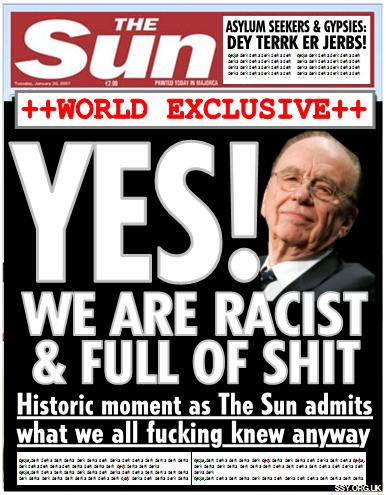 Leftfield has already reported how the World Cup, far from being an economic benefit to South Africa, has in fact been a license for FIFA and international capitalism to loot the country.
Leftfield has already reported how the World Cup, far from being an economic benefit to South Africa, has in fact been a license for FIFA and international capitalism to loot the country.
Now it looks as if the full force of the law might be used to keep the electricity supply to fans’ TVs running, and prevent workers from exercising their right to strike.
Eskom is South Africa’s state owned electricity supplier, although attempts were made to at least partially privatise it in the late 1990s, meaning it operates in many ways as a private business. Eskom workers are demanding a 9% pay increase, as well as a housing allowance to help them cope with the rocketing cost of keeping a roof over their heads. The company has refused to meet their demands, offering increases in wages and allowances well below what the workers need during an economic crisis.
A strike would be unlikely to affect the actual electricity supply to the stadia themselves, as they generally have back up diesel generators. But it could affect the supply to TVs for fans from around the world who are in South Africa without tickets. More importantly for the South African economy, and global capitalism, it could disrupt platinum and gold mines, affecting the global price of these commodities.
In response to the unions pledge to push ahead with strike action next week, as the World Cup moves towards semi finals, Eskom has threatened to go to the courts and have the strike declared illegal, because electricity is deemed an “essential service”, and therefore presumably electricity workers should have no rights. “This is a country of laws and we must all abide by the laws,” said Eskom CEO Brian Dames.
The unions counter that they have tried to reach a ‘minimum service agreement’ with Eskom, meaning that non-essential workers would be able to strike while the lights were kept on. Eskom instead proposed an agreement that would have completely removed the right to strike from all workers, which the unions refused to sign.
What’s particularly ridiculous about Eskom’s refusal to budge is that its own executives have been caught out using company funds to feather their own nests. Executives are to be paid a 9.6 million Rand performance bonus, while they claim they can’t afford to pay their workers properly. They have established a R1 billion pool to fund payments to top bosses.
They’ve also spent R12.6 million on World Cup tickets for top execs.
Dames said he was appealing for “organised labour to play a part in putting our country first.”
But union spokesman Lesiba Seshoka hit back, saying: “We would like to put our country first; why don’t they put their workers first? Why are they putting themselves first?”
After the government attempted to partially privatise Eskom in the late 1990s, it refused to provide funds for the building of extra electrical power plants, meaning that there are now problems with supply leading to blackouts. A huge proportion of the poor population of South Africa continues to have no access to electricity supply.
 Protesters slam rising electricity bills
Protesters slam rising electricity bills
During the Apartheid era, it was common for people to refuse to pay their power bills as a form of struggle against the racist and oppressive government, and to covertly connect themselves to the supply illegally. This form of struggle has seen a resurgence in recent years as the urban poor have been enraged that the impact of neoliberal economic policies means many still have no access to a proper home, electricity or clean water, and for those that do have access to utilities bills have jumped.
These policies have been implemented by the African National Congress government, which has now largely abandoned its left wing roots to become a party that only implements policies that suit South African and international capitalists. Significantly, the British bosses’ paper, the Financial Times, reckons there’ll be no strike because of the ANC. “If things aren’t sorted out by the weekend, expect party heavyweights to get involved,” they write.
The latest strike threat to the World Cup comes after the dramatic strike of stewards at stadia forced police to take over security at games. The stewards were angry that at their poverty pay at the hands of FIFA contractor Stallion Security. They linked up with community protesters who held banners demanding “World Cup for All! People Before Profit” and declaring “Apartheid Still Exists!”
Police used rubber bullets and tear gas to disperse strikers before taking over security themselves at games such as the first round match between Brazil and North Korea.

Workers on strike at Soccer City
The heavy handed security for the World Cup has been a scandalous issue, with FIFA using South African police as a tool to protect their own business interests, excluding anyone who wanted to expose their role, or local traders trying to make a livelihood in the zones around the stadia where FIFA has been given exclusive economic control. A local environmentalist was arrested in durban for handing out leaflets about the World Cup’s impact at a ‘Fan Fest’ event, and another man who was found with 30 tickets and “no explanation” was given three years in jail.
Stallion itself is a scandal ridden operation, after a promise by the labour minister to ban it due to its terrible treatment of workers was not fulfilled. In 2001 it was responsible for a stampede at a Johannesburg football game that left 40 dead.
Their partner as head of security for FIFA’s local organising committee is former prisons commissioner Linda Mti, who gets a cut from a notorious privatised concentration camp for immigrants who have been arrested at Lindela (as well as being a triple arrestee for drunk driving.)
 In the world of psychic powers, few tests come bigger than predicting the fate of humanity itself.
In the world of psychic powers, few tests come bigger than predicting the fate of humanity itself.
 Leftfield has
Leftfield has 


 Entries (RSS)
Entries (RSS)